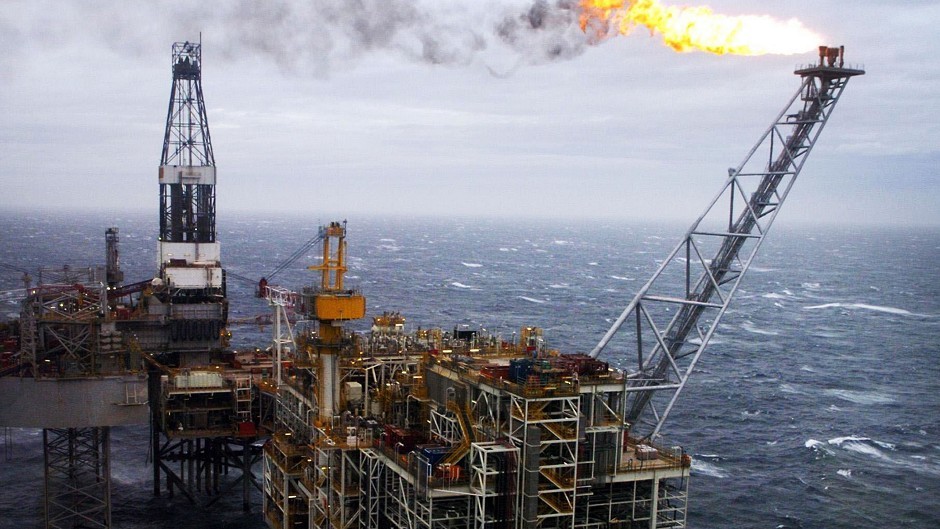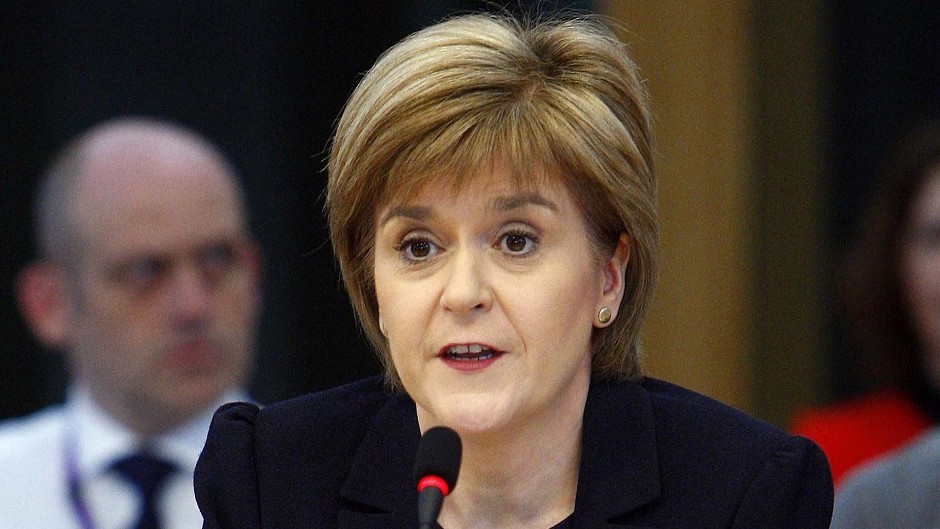With less than two months until the general election, falling oil revenues have reignited the debate over Scotland’s future.
Official figures show that Scotland’s overall deficit has fallen but still remained higher than the rest of the UK.
The latest Government Expenditure and Revenue Scotland (Gers) report put the country’s geographical share of North Sea revenues down from £5.23billion in 2012-13 to £4billion in 2013-14.
Scotland’s deficit, including oil revenue, was £12.4billion last year, or 8.1% of GDP, compared to 5.6% of GDP for the whole of the UK.
The Gers report only goes up until last April and therefore does not cover the period from the end of last year when the price of oil dramatically fell from around $110 a barrel to a low of around $50 at one stage.
Gers sets out what revenues were raised in Scotland, how much it paid for the full range of public services that were consumed and to what extent the revenues raised cover the costs of these public services.
Its annual publication sparks off a bitter debate over Scotland’s role in the UK. This year’s data has led to a continuation of the referendum debate as it spills over into the general election.
If current polls are accurate the SNP are expected to make huge gains putting the party in an advantageous position to press for further fiscal autonomy for Scotland as part of the ongoing campaign for independence.
Both sides of the constitutional debate picked out the relevant figures to bolster their case. Including oil Scotland paid £400 more tax per person than the UK, but in return each person received £1,200. Borrowing north of the border was around £800 per person more than the rest of the UK.
Scottish Secretary Alistair Carmichael said yesterday’s Scottish Government figures put the case for remaining in the UK “beyond all doubt”
“It is concrete proof that Scotland’s public spending is protected and receives secure and stable levels of funding, alongside the ability to absorb economic shocks more effectively,” he said.
“These figures are based on a high oil price of over $100 rather than the current price, emphasising the need for us to pool our risk and resources in the future. The benefits include the £2.3billion in extra spending the Scottish Government has received above and beyond its budget since 2010.
“Today’s figures will force the long overdue retirement of a number of economic myths used by those who argue for Scotland leaving the UK.
First Minister Nicola Sturgeon said Scotland faced cuts from Westminster over the next few years whether oil prices were high or low.
Gers confirmed that for the 34th year in a row Scotland continued to pay more in revenues per head to the Treasury than the rest of the UK, she said, and that the deficit was falling.
The deficit reduction from £14.3billion to £12.4billion was despite lower oil revenues, which were the result of higher levels of capital investment, she said.
“Scotland is a prosperous country – our proposition is that it will be in an even stronger position if we gain the greater powers that we need to grow our economy faster, create more jobs and boost our revenues.
“I believe in Scotland being independent – I believe that today as strongly as I believed it in the referendum campaign.”


